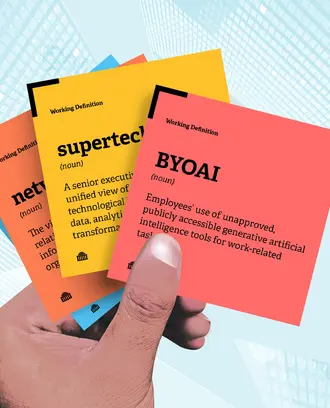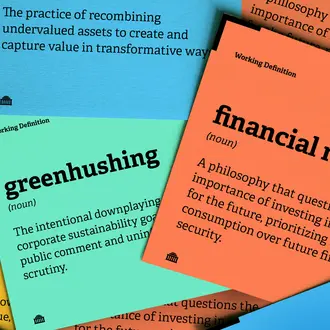Social Media
From MIT social media summit, 5 trends experts are watching
Fighting misinformation, understanding powerful algorithms, and mitigating harms are top concerns for social media experts.
With social media playing a major role throughout society, understanding how to shape and manage its power is an urgent challenge.
Experts discussed the complicated social media landscape and meaningful solutions at the second annual Social Media Summit @MIT, hosted by the MIT Initiative on the Digital Economy.
A report from the event outlined five global social media trends experts said they are watching:
1. Social media’s impact on child and adult psychology.
Frances Haugen, a former Facebook algorithmic product manager, became known as the Facebook whistleblower after she left the company in 2021 and shared internal documents with the Wall Street Journal. During a discussion with MIT Sloan professor she described the ways social media and targeted advertising affect children. Because of algorithms, the most extreme content often gets the most views, Haugen said — for example, someone searching for “healthy eating” will often end up being shown content that glorifies eating disorders.
Haugen outlined three ways to address these problems on Facebook:
- Ban targeted ads to children under 16 years old.
- Dedicate more resources to fight fake news and hate speech.
- Keep children under 13 off the platform.
2. The threat of online misinformation and the need for systemic solutions.
Studies show just 1% of online news is false, but it can have a real impact — research shows that the more someone hears an assertion, true or false, the more likely they are to believe it. Massachusetts state senator Becca Rausch said anti-vaccination social media feeds are growing in popularity and have used the COVID-19 pandemic to spread anti-vaccine sentiment. Some of the solutions rest with legislation, she said, though it’s unclear how effective laws are against algorithms that promote fringe content.
3. The importance of algorithmic transparency — and how to achieve it.
Algorithmic transparency is the idea that social media platforms have such a significant impact on society that researchers should be able to study the algorithms that fuel them. But many companies treat their algorithms as classified secrets. According to MIT Sloan associate professor one way to move forward without stifling innovation is incentivizing social media companies to share internal data with other researchers. But simply gaining access isn’t enough, he noted — his own research shows how hard it is to quantify algorithmic impacts.
Related Articles
4. The expansion of social media’s impact on geopolitics and war.
Russia’s military invasion of Ukraine has led to a devastating conflict. An information war is also playing out as both sides use social media to rally support and spread misinformation and disinformation. False videos are proliferating on TikTok and messaging app Telegram, especially in Russia and China. Meanwhile, Ukrainian president Volodymyr Zelenskyy and his government have used the power of the platform to crowdsource a virtual army of people who can donate funds and materials.
5. The formation of AI ethics standards and training.
Responsible AI means the people behind software ensure what they are building does not harm people, and instead enables people to thrive, according to Rumman Chowdhury, SB ’03, the director of machine learning ethics, transparency, and accountability at Twitter.
Macomb Community College professor Chris Gilliard said the government should require these considerations. “We should do more than just wait for AI developers to become more ethical,” he said. “If we look at how other industries work … there are mechanisms so that you are typically not allowed to just release something, do massive amounts of damage, and then perhaps manage those damages later on.”
Read the social media summit report and watch the panels.
Read next: Social media is broken. A new report offers 25 ways to fix it




